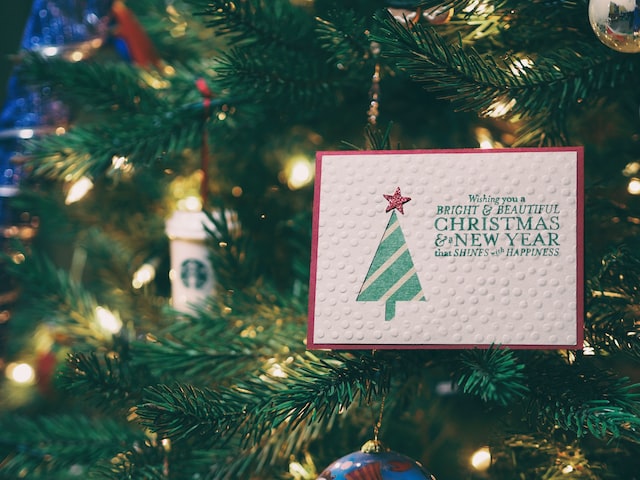Luke 10:20
20 However, do not rejoice that the spirits submit to you, but rejoice that your names are written in heaven.
Do you send out Christmas cards? I rarely do. It’s not that I don’t like them. I enjoy opening the mailbox and seeing something that isn’t junk mail or a bill staring me in the face. I prominently display the cards I get each Christmas season in my house. They become part of my decorations. It is nice to have them.
Then why don’t I send them myself? In a word, time. December is by far the busiest month of my family’s year. There are concerts to play in, plays to act in, and parties to attend. There are social obligations galore. It is all we can do to tread water, so to speak. The thought of buying a set of cards (or of getting the family together to get a picture for making them) is just not a reasonable proposition. And this is really ironic, when you consider the origin of the Christmas card. The first card was created in 1843 by a man named Sir Henry Cole. And the reason he created it was that he didn’t have enough time to respond to everyone that had written him personally during the holiday season. It was considered rude not to respond to someone who had taken the time to write, so this was Sir Cole’s way of getting to everyone without having to write each one a personal response.
Cole enlisted the help of the artist John Calcott Horsley, who designed a scene of many people sitting around a dinner table, toasting the viewer with their wine glasses. It read “A Merry Christmas And A Happy New Year To You.” The idea took a little while to catch on, but by the 1860s it was well on its way to becoming a holiday tradition.
Do you know the real reason why I like Christmas cards? It is because it shows that you are on someone’s list. Maybe that means that you are family. Maybe it means that you are close friends with the sender. Or maybe it means that there is some business relationship between the two of you. Whatever the relation, getting a card from someone means that you somehow merited the time and effort required for them to create and send one to you. I find that comforting. Being on someone’s list, in a good way, can make all the difference.
Maybe that is why Santa Claus is so popular. He keeps a list too, according to legend. Actually he keeps two of them. One of them is a good list. And we tell our children to strive to be on it. Because being on that list means the same thing as being on the Christmas card list, in a way. It means that you have somehow merited the time and attention needed to get something nice on Christmas Eve night.
Gift giving is of course very popular on Christmas. And here the same thing holds true. If you get a gift from someone it means quite a lot. Think about all of the things that had to happen for you to get it.
The sender had to have you on his or her list.
Time was taken to decide what to get you, how to get it, and how to give it to you.
Money or other resources were used to buy or make the gift.
Planning was most likely involved in getting it to you (or hiding it from you until it was time to give).
If you get a gift from someone it means the sender values you. You are respected. You are loved. Someone invested time and effort into you.
That’s what Christmas cards, and gifts, and food, etc. really mean. Someone had you on their good list.
We believe in a divine list of sorts, don’t we? Our faith tells us we belong to a list kept at the highest level. This list also tells us we have value. We matter to God. We get gifts. Time and effort are put into them. And we are encouraged to use those gifts to help others around us. We are charged to take the time and interest and resources needed to be a gift to others, just as God has taken the time and interest and resources needed to be a gift to us.
This season (and beyond), let us all do our best to appreciate the fact that we are on someone’s list. And let’s see what happens when we add others to our own lists in the future.
God Bless

